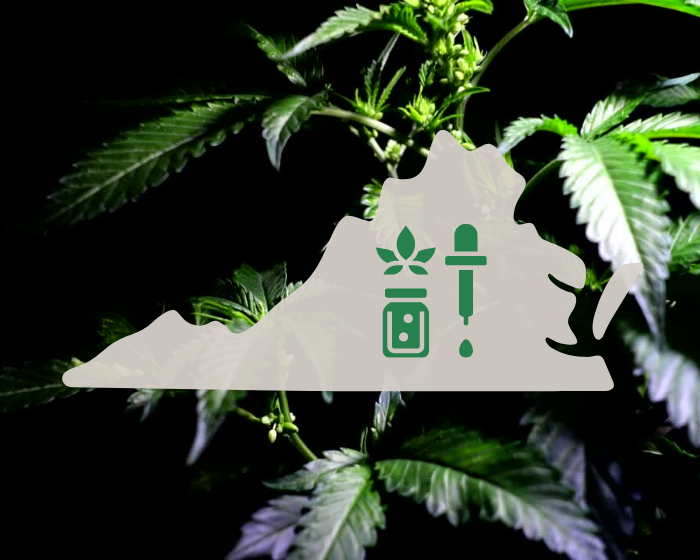The Latest Developments and Regulations: An Overview of Delta-8’s Legal Status in the USA.

Delta-8 tetrahydrocannabinol, also known as Delta-8 THC, is a minor cannabinoid found in the cannabis plant, similar to the more well-known Delta-9 THC. However, Delta-8 THC has gained popularity in recent years due to its purported psychoactive effects and potential health benefits. In this post, we will delve into the legality of Delta-8 THC in the US and explore the latest developments and regulations. We will also discuss the legal status of CBD oil, another cannabis-derived compound, and examine where Delta-8 THC is legal and where it’s not.
Delta-8 THC: Legal Status in the United States
According to the federal government, Delta-8 THC is considered a Schedule I controlled substance, which means it is illegal at the federal level. However, some states have taken a more permissive stance on Delta-8 THC, allowing it to be sold and consumed within their borders. With conflicting regulations at the federal and state levels, consumers are left wondering whether Delta-8 THC is legal or not.
List of States Where Delta-8 THC is Banned
As of February 2023, Delta-8 THC is banned in the following states: Alaska, Arizona, Arkansas, Colorado, Delaware, Idaho, Iowa, Kentucky, Mississippi, Montana, Rhode Island, and Utah. In addition, some states have passed legislation that could restrict access to Delta-8 THC in the future. For example, in Colorado, lawmakers are considering a bill that would impose stricter regulations on Delta-8 THC products, requiring them to be sold in licensed dispensaries and subject to testing for contaminants.
Where is Delta-8 THC Legal?
Some states have explicitly legalized Delta-8 THC. For example, in New York, Delta-8 THC is legal as long as it is derived from hemp and contains less than 0.3% Delta-9 THC, the compound found in cannabis that is responsible for its psychoactive effects. As of February 2023, the following states have not banned Delta-8 THC and, therefore, can be considered legal states for Delta-8: Alabama, California, Connecticut, Florida, Georgia, Hawaii, Illinois, Indiana, Kansas, Louisiana, Maine, Maryland, Massachusetts, Michigan, Minnesota, Missouri, Nebraska, Nevada, New Hampshire, New Jersey, New Mexico, New York, North Carolina, North Dakota, Ohio, Oklahoma, Oregon, Pennsylvania, South Carolina, South Dakota, Tennessee, Texas, Vermont, Virginia, Washington, West Virginia, Wisconsin, and Wyoming.
It’s important to note that the legal status of Delta-8 THC is still evolving, and it’s possible that additional states could ban or legalize it in the future. Therefore, it’s always best to research the regulations in your area and consult with legal experts before purchasing or consuming any Delta-8 THC products.
CBD Oil: Legal Status in the United States
Cannabidiol (CBD) is a non-psychoactive cannabinoid found in cannabis plants that has gained popularity in recent years for its potential health benefits. However, the legality of CBD oil in the United States is complex and varies depending on the source of the CBD and the state in which it is sold and consumed.
In 2018, the US government passed the Farm Bill, which legalized the production of hemp, defined as cannabis plants with less than 0.3% THC. This legislation made CBD derived from hemp legal at the federal level, as long as it contains less than 0.3% THC. However, the legality of CBD oil derived from marijuana, a cannabis plant with higher THC levels than hemp, is less clear. Marijuana-derived CBD oil is still considered a Schedule I controlled substance under federal law, meaning it is illegal at the federal level. However, some states have legalized marijuana for medical or recreational use, and in those states, marijuana-derived CBD oil may be legal for medical use.
Despite the federal legalization of hemp-derived CBD oil, some states have enacted their own regulations regarding the sale and consumption of CBD oil. For example, in some states, CBD oil is only legal for medical use with a doctor’s prescription, while in other states, it is legal for both medical and recreational use.
It’s also worth noting that the Food and Drug Administration (FDA) has not yet approved CBD oil as a dietary supplement or medication. The agency has issued warning letters to companies that make health claims about CBD oil, and it is currently conducting research to determine its safety and efficacy for various medical conditions.
Wrapping Up
In conclusion, the legality of Delta-8 THC in the United States is a complex issue that continues to evolve. While the federal government considers Delta-8 THC to be a Schedule I controlled substance, some states have taken a more permissive approach and allowed it to be sold and consumed within their borders. However, other states have banned Delta-8 THC or are considering stricter regulations.




